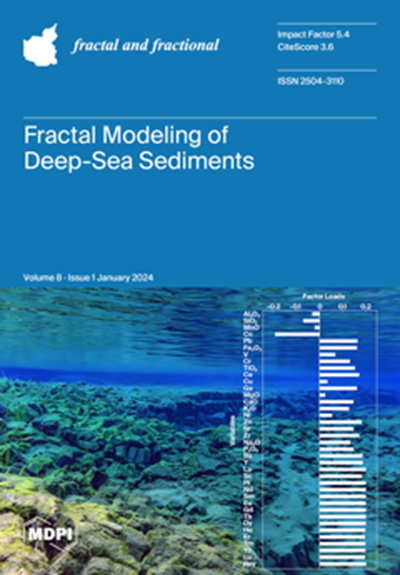Fractional Fuzzy Neural System: Fractional Differential-Based Compensation Prediction for Reputation Infringement Cases
IF 3.6
2区 数学
Q1 MATHEMATICS, INTERDISCIPLINARY APPLICATIONS
引用次数: 0
Abstract
With the rise of social media and the internet, the rapid dissemination of information has increased the likelihood of reputation infringement. This study utilizes judicial big data and AI to analyze intrinsic connections in reputation infringement cases, aiding judges in delivering consistent rulings. The challenge lies in balancing freedom of speech with the right to reputation and addressing the ambiguity and subjectivity in infringement cases. This research constructs a structured reputation infringement case dataset from Chinese Judgments Online. It introduces a Fractional Fuzzy Neural System (FFNS) to tackle the vagueness in reputation infringement acts and judicial language, enhancing prediction accuracy for case outcomes. The FFNS, integrating fractional calculus, fuzzy logic, and neural networks, excels in adaptability and nonlinear modeling. It uses fractional order fuzzy membership functions to depict the extent and severity of reputation infringement accurately, combining these outputs with neural networks for predictive analysis. The result is a more precise adjudication tool, demonstrating significant potential for judicial application.分数模糊神经系统:基于分数差分的名誉侵权案件赔偿预测
随着社交媒体和互联网的兴起,信息的快速传播增加了名誉侵权的可能性。本研究利用司法大数据和人工智能分析名誉侵权案件的内在联系,帮助法官做出一致的判决。如何平衡言论自由与名誉权,解决名誉侵权案件中的模糊性和主观性,是一项挑战。本研究从中国裁判文书网上构建了一个结构化的名誉侵权案件数据集。它引入了分数模糊神经系统(FFNS)来解决名誉侵权行为和司法语言中的模糊性问题,提高对案件结果的预测准确性。分数模糊神经系统集分数微积分、模糊逻辑和神经网络于一体,在适应性和非线性建模方面表现出色。它使用分数阶模糊成员函数来准确描述名誉侵权的范围和严重程度,并将这些输出与神经网络结合起来进行预测分析。其结果是一个更精确的裁决工具,在司法应用方面展现出巨大的潜力。
本文章由计算机程序翻译,如有差异,请以英文原文为准。
求助全文
约1分钟内获得全文
求助全文
来源期刊

Fractal and Fractional
MATHEMATICS, INTERDISCIPLINARY APPLICATIONS-
CiteScore
4.60
自引率
18.50%
发文量
632
审稿时长
11 weeks
期刊介绍:
Fractal and Fractional is an international, scientific, peer-reviewed, open access journal that focuses on the study of fractals and fractional calculus, as well as their applications across various fields of science and engineering. It is published monthly online by MDPI and offers a cutting-edge platform for research papers, reviews, and short notes in this specialized area. The journal, identified by ISSN 2504-3110, encourages scientists to submit their experimental and theoretical findings in great detail, with no limits on the length of manuscripts to ensure reproducibility. A key objective is to facilitate the publication of detailed research, including experimental procedures and calculations. "Fractal and Fractional" also stands out for its unique offerings: it warmly welcomes manuscripts related to research proposals and innovative ideas, and allows for the deposition of electronic files containing detailed calculations and experimental protocols as supplementary material.
 求助内容:
求助内容: 应助结果提醒方式:
应助结果提醒方式:


